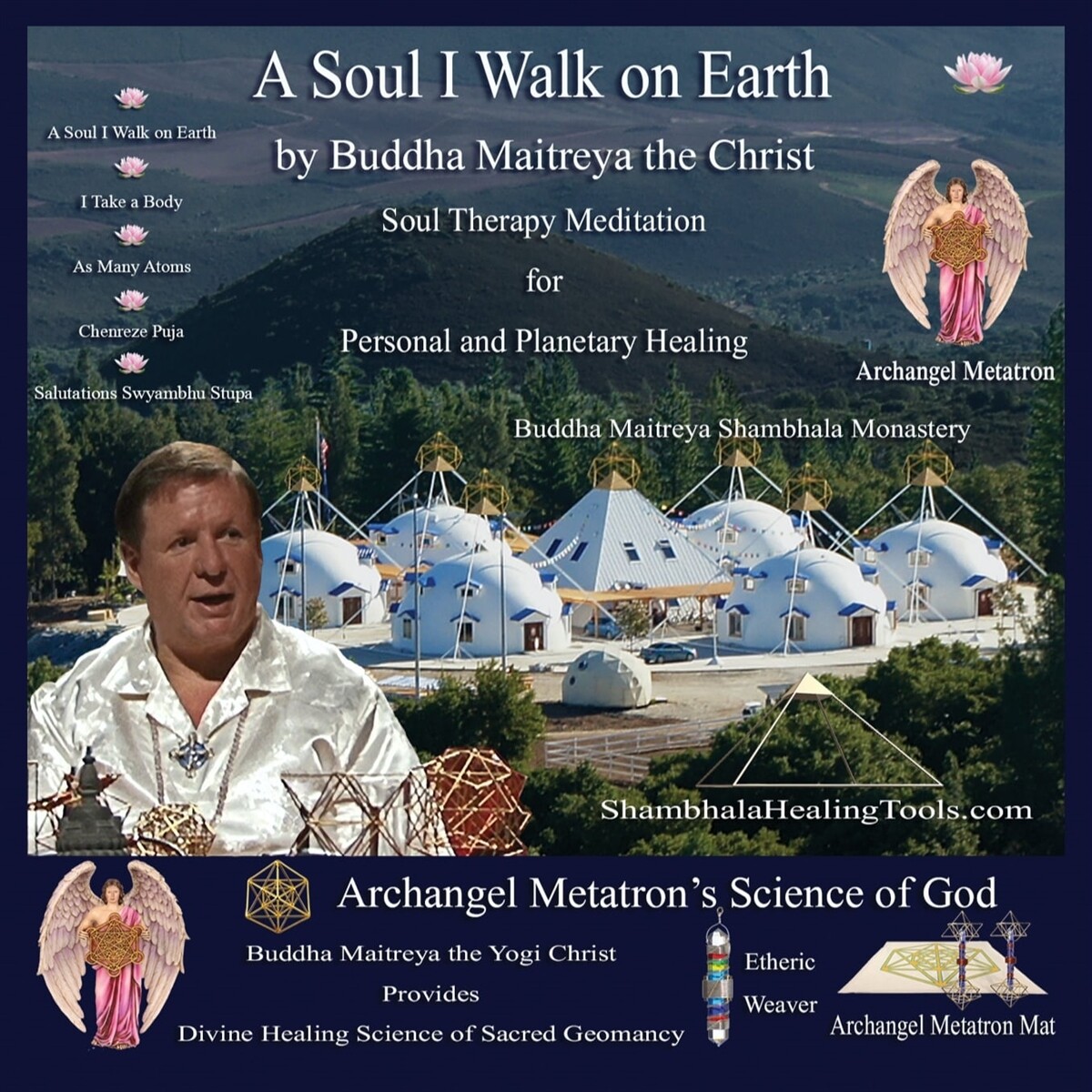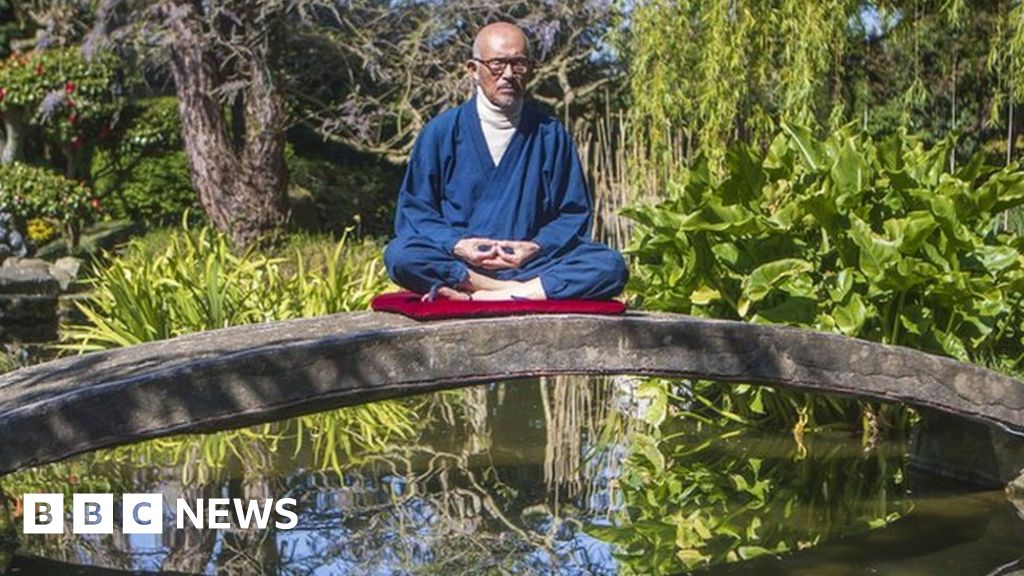Zen and Mahayana Buddhism are not only about being "in the present," letting the future take care of itself.
There has always been a millenarian tendency in Mahayana Buddhism, teachings offering visions of an hoped for future age of peace and goodness, to someday come about even in this earthly world. Very often, the symbol of that bright future is centered on "Maitreya," the so-called "Future Buddha."

In centuries past in China especially, but even today, many (doubtful) figures have appeared in the Buddhist world claiming to be Maitreya come to earth (not unlike the folks who claim to be Jesus reborn in that other religion).
Even Dogen spoke of Maitreya, and our meal chant during Oryoki ritual contains a dedication to "Maitreya Buddha, the Future Buddha." Dogen spoke of Maitreya as also beyond time, beyond being born or not born, yet being born in all of us and being brought to life in our actions now. Dogen tells this story in Eihei Koroku:

I have titled my book "Building the Future Buddha" in my belief that, perhaps, we need to bring the future Buddha and a better world to life through our choices, peaceful and caring actions, including the wise use of technology and the challenges that such tools place before us.
The vision of Maitreya's world is not better described than in "The Sutra That Expounds the Descent of Maitreya Buddha and His Enlightenment" (弥勒下生経 - Miroku Geshō Kyō). Here is a portion:
More, from page 15 here [PDF]: https://bdkamerica.org/download/1955
How do you feel about such a utopian tendency in traditional Buddhism?
Gassho, J
stlah
There has always been a millenarian tendency in Mahayana Buddhism, teachings offering visions of an hoped for future age of peace and goodness, to someday come about even in this earthly world. Very often, the symbol of that bright future is centered on "Maitreya," the so-called "Future Buddha."

Shakyamuni Buddha [is said to have] predicted that due to the inevitable degeneration of the times, his own teachings would last just five thousand years before disappearing from this world. People will grow more and more immoral and their lifespan will gradually decrease, as will their health, stature and fortune. While such delusions as miserliness, hatred and jealousy gain strength, the world will go through prolonged periods of famine, disease and continuous warfare until it eventually resembles a vast battlefield. Following which, upon the appearance of Maitreya, would come a time of great peace and redemption. ... Maitreya's appearance will mark a great turning point in the fortunes of this world.
Maitreya (Sanskrit: मैत्रेय) is regarded as the future Buddha of this world in Buddhist eschatology. As the 5th and final Buddha of the current kalpa, Maitreya's teachings will be aimed at reinstating the dharma. In all branches of Buddhism, he is viewed as the direct successor of Gautama Buddha. Maitreya is the earliest bodhisattva around whom a cult developed and is mentioned in scriptures from the 3rd century CE. In some Buddhist literature, such as the Amitabha Sutra and the Lotus Sutra, he is referred to as Ajita. Despite many religious figures and spiritual leaders claiming to be Maitreya throughout history, all Buddhists firmly agree that these were false claims, indicating that Maitreya, the Buddha of the Future, is yet to appear.
* * *
Maitreya (Sanskrit: मैत्रेय) is regarded as the future Buddha of this world in Buddhist eschatology. As the 5th and final Buddha of the current kalpa, Maitreya's teachings will be aimed at reinstating the dharma. In all branches of Buddhism, he is viewed as the direct successor of Gautama Buddha. Maitreya is the earliest bodhisattva around whom a cult developed and is mentioned in scriptures from the 3rd century CE. In some Buddhist literature, such as the Amitabha Sutra and the Lotus Sutra, he is referred to as Ajita. Despite many religious figures and spiritual leaders claiming to be Maitreya throughout history, all Buddhists firmly agree that these were false claims, indicating that Maitreya, the Buddha of the Future, is yet to appear.
Even Dogen spoke of Maitreya, and our meal chant during Oryoki ritual contains a dedication to "Maitreya Buddha, the Future Buddha." Dogen spoke of Maitreya as also beyond time, beyond being born or not born, yet being born in all of us and being brought to life in our actions now. Dogen tells this story in Eihei Koroku:
Here is a story. Dongshan [Liangjie] said to monk Yunju, “Long ago Nanquan asked a monk who was lecturing on the Sutra of Maitreya’s Descent, ‘When will Maitreya descend?’ The monk Yunju replied, ‘He is presently in the heavenly palace, and will be born in the future.’ Nanquan said, ‘There is no Maitreya up in heaven, and no Maitreya down on the earth.’ Following this story, Yunju asked, “If it is simply that there is no Maitreya up in heaven and no Maitreya down on the ground, I wonder who granted his name [Maitreya]?” Dongshan immediately shook his meditation chair and said, “[Yunju].”
The teacher Dogen further says: There is no Maitreya up in heaven, and no Maitreya down on the earth. Maitreya is not Maitreya; [and so] Maitreya is Maitreya. Even though this is so, doesn’t everybody want to see Maitreya?
Dogen raised his whisk and said: You have met with Maitreya. Already having met him, everyone, try to say whether Maitreya exists or does not exist. Dogen threw down his whisk, got down from his seat, and circumambulated the hall.
The teacher Dogen further says: There is no Maitreya up in heaven, and no Maitreya down on the earth. Maitreya is not Maitreya; [and so] Maitreya is Maitreya. Even though this is so, doesn’t everybody want to see Maitreya?
Dogen raised his whisk and said: You have met with Maitreya. Already having met him, everyone, try to say whether Maitreya exists or does not exist. Dogen threw down his whisk, got down from his seat, and circumambulated the hall.

I have titled my book "Building the Future Buddha" in my belief that, perhaps, we need to bring the future Buddha and a better world to life through our choices, peaceful and caring actions, including the wise use of technology and the challenges that such tools place before us.
The vision of Maitreya's world is not better described than in "The Sutra That Expounds the Descent of Maitreya Buddha and His Enlightenment" (弥勒下生経 - Miroku Geshō Kyō). Here is a portion:
“The land of the Buddha Maitreya shall be a place of life, pristine … Its ground shall be wide and level like a mirror, covered in beautiful flowers and tender grasses, with a multitude of trees and blossoming fruits. ... The many cities and towns shall lay but a rooster's flight between them. … The residents will be wise, virtuous, joyful and peaceful, satisfied in their sense desires. All will be free of sicknesses caused by cold or heat, wind or fire, and none shall suffer from the nine afflictions (of anger, hate, fear and the rest). People will live to be 84,000 years old, not dying early. … The city will be perfect in setting, exquisite in beauty, lavishly adorned, sparkling and immaculate. … its streets wide and swept clean. … There shall be pillars of shining jewels, 10 leagues high, such that no candles are needed night or day. … Everywhere there are heaps of gold, silver and jewels … The ground cracks open to receive human waste, then closes again, as flowers spring forth to cover all stench. … When people grow old, then frail, they go by their choosing to the mountains and forests, to sit quietly. With thoughts of Buddha in mind, they die peacefully, joyfully, then to be reborn. … In this peaceful and happy age, there is no threat from robbers or thieves, no enemies, no need to lock a door. Nor are there calamities of flood or fire, no wars or weapons, no famine, no toxins doing harm. The people live always with lovingkindness, with respect for one another, in harmony … like sons who loves their father, like a mother who loves her sons
How do you feel about such a utopian tendency in traditional Buddhism?
Gassho, J
stlah














Comment